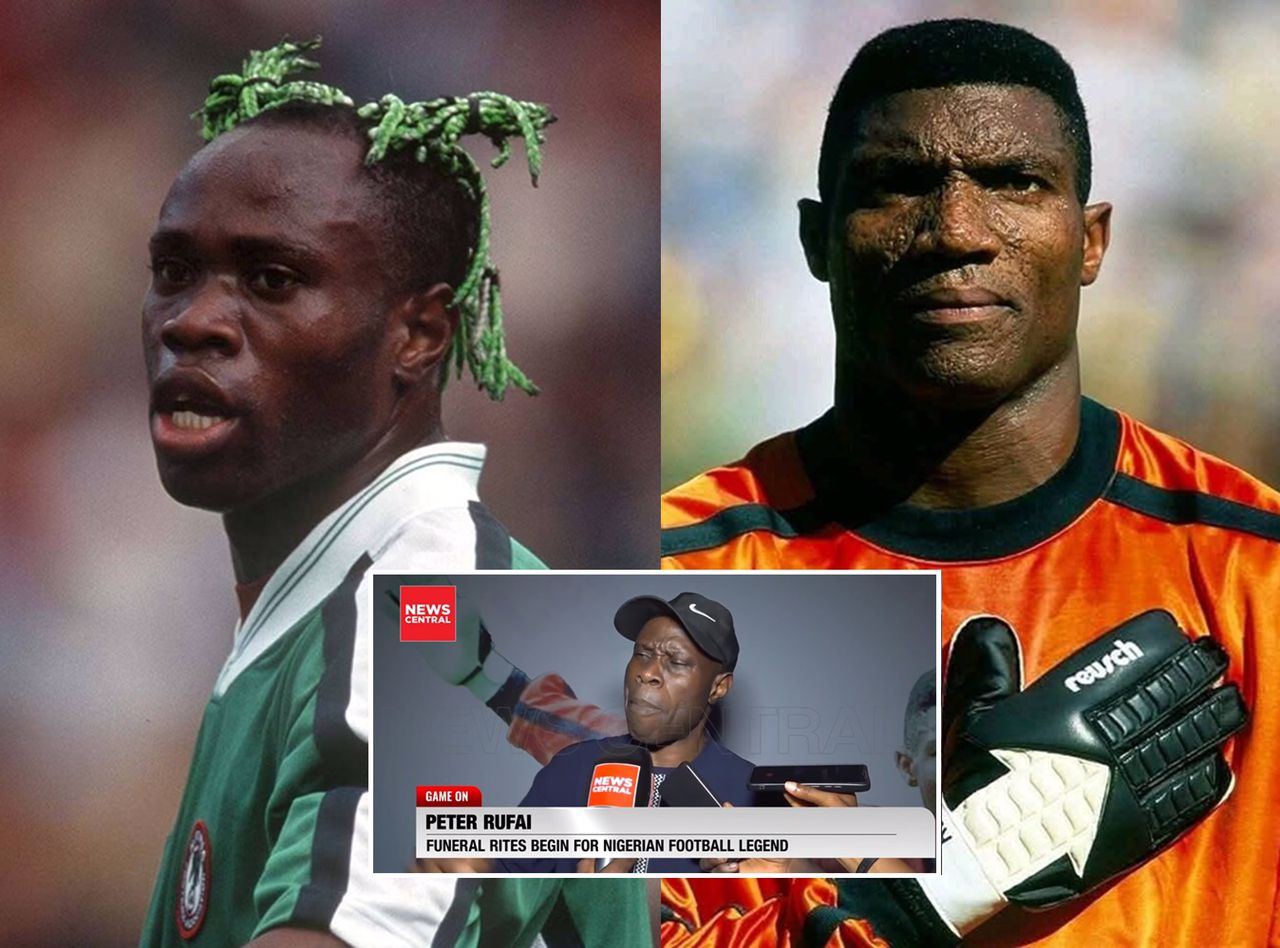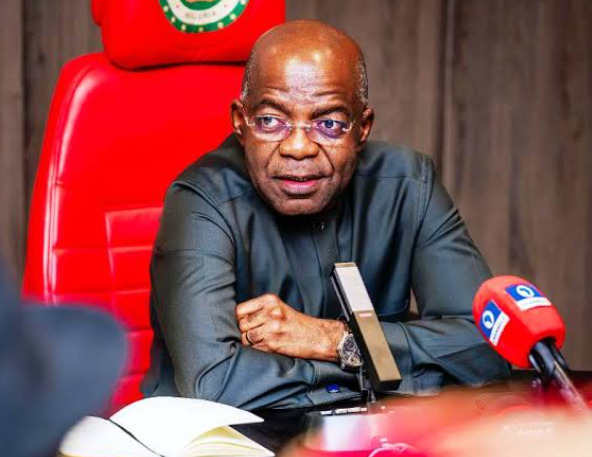
“What Kind of Nation Is This?” – Taribo West Breaks Down Over the Painful Treatment of Peter Rufai Before His Death

The football world has been thrown into a somber reflection as former Nigerian international defender, Taribo West, voiced out his deep frustration and disappointment over the manner legendary Super Eagles goalkeeper, Peter Rufai, was treated before his passing. The retired defender, known for his fiery spirit on and off the pitch, did not hold back his emotions as he lamented the negligence and disregard that Nigerian football icons often face after giving their best years to the national team. His words were heavy with both pain and anger, a piercing reminder of how the country tends to forget those who once brought it glory on the global stage.
Peter Rufai, popularly known as “Dodo Mayana,” was not just an ordinary goalkeeper. He was a national hero, a man who wore the green and white with pride, representing Nigeria in two World Cups and numerous tournaments across the globe. His name was synonymous with reliability between the posts, and he stood tall as one of Africa’s greatest shot-stoppers during the golden era of Nigerian football in the 1990s. But like many before him, the same country he fought hard to represent seemed to turn its back on him in his later years, and the silence surrounding his struggles has now become a bitter pill for those who once played alongside him.
Taribo West, visibly enraged and heartbroken, questioned the morality of a nation that celebrates its stars only when they are at their peak but abandons them when they need support the most. “What kind of nation is this? How can you allow someone who sacrificed so much for Nigeria to be treated like he was nothing? I will never advise my son to play for this country,” Taribo fumed, his voice echoing the sentiments of many fans who feel betrayed by the system. His words cut deep, highlighting the recurring issue of neglect faced by retired athletes who once carried the pride of millions on their shoulders.
The lamentation is not just about Peter Rufai but about the pattern that has plagued Nigerian sports for decades. Time and again, stories emerge of ex-footballers living in poverty, battling illnesses without proper medical care, or simply fading into obscurity because the institutions that should have protected them failed to do so. These were men who once filled stadiums, who gave fans unforgettable moments of joy, who made Nigeria a force to reckon with in global football. Yet, when the cheers fade and the boots are hung, they are left to their fate, with little or no recognition of their contributions.
Taribo West, who himself enjoyed a career across Europe after leaving Nigeria, recalled the days when Rufai was a pillar of confidence for the Super Eagles. He spoke of the camaraderie in the team, the shared hunger for victory, and the sacrifices they made, often playing under tough conditions but never backing down because of the passion they carried for the green and white jersey. For him, to see Rufai reduced to a mere footnote in his final days is not only heartbreaking but also an indictment of a country that does not value its heroes.
“What message are we sending to the younger generation?” Taribo asked, his frustration spilling into every sentence. “We keep telling them to be patriotic, to fight for the flag, to give their blood and sweat for Nigeria. But look at how Nigeria pays them back. Is this the kind of future we want for our children? I would rather my son play for another nation where he will be respected and cared for than give everything to a country that forgets you once the crowd stops cheering.”
His statement has sparked a wider debate, reigniting conversations about the welfare of retired athletes in Nigeria. Many fans have taken to social media to echo his concerns, pointing out how other nations immortalize their legends, ensuring they remain relevant long after their playing days are over. Statues, ambassadorial roles, pensions, and healthcare packages are common in many countries for those who served in national teams, but in Nigeria, such initiatives are rare or poorly implemented. Instead, players like Rufai are left to struggle quietly until tragedy strikes, and only then do tributes pour in—too little, too late.
The death of Peter Rufai, and the anger expressed by Taribo West, has once again exposed the cracks in the system. Nigerian football, despite its global reputation and the massive wealth it generates, has consistently failed to create a sustainable structure to care for its past heroes. For many fans, it feels like an endless cycle: celebrate the players when they are active, forget them when they retire, and mourn them when they die. The cycle repeats itself, leaving behind a trail of unfulfilled promises and wasted legacies.
Taribo’s pain is amplified by the fact that Rufai was not just a teammate but a brother in arms. They fought battles together on the pitch, stood side by side against world-class opponents, and lifted the pride of millions with their performances. To him, Rufai deserved better, not just as a footballer but as a human being who gave his best years to his country. His emotional outburst is not merely about football; it is about justice, about dignity, about the value of human life in a nation that seems quick to forget.
In many ways, his words are a warning—a warning to both the government and the football authorities that something has to change. The neglect of ex-footballers has gone on for far too long, and if it continues, the consequences will not just be felt in the pain of forgotten heroes but in the disillusionment of future generations who may no longer see patriotism as worthwhile. When national icons like Taribo West openly declare they would not want their children to play for Nigeria, it reflects a dangerous loss of faith in the system, one that could ultimately weaken the spirit of the game in the country.
For now, the football community mourns Peter Rufai, a man whose gloves once shielded Nigeria from defeat, a man who gave his heart and soul to the sport and to his country. But amid the mourning, there is also anger, frustration, and disappointment. Taribo West’s voice may be the loudest at the moment, but it speaks for many who feel that enough is enough. The call is clear: Nigeria must find a way to honor its heroes not just in death but in life, not just with words but with real, tangible actions. Until that happens, the cries of injustice will only grow louder, and the nation risks losing not just its legends but also the very soul of its sporting identity.


